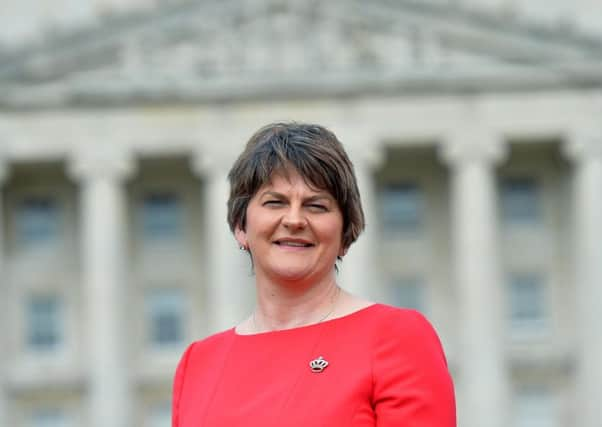Sam McBride: Despite Foster's huge mandate, she has just a small window


For the DUP – the unquestioned victor in this election – there is now the prospect of five years at the top of the Executive before another Assembly election.
Just saying ‘2021’, the point at which the next Assembly election will be held, out loud gives a sense of how far away that is.
Advertisement
Hide AdAdvertisement
Hide AdLikewise, for the parties which performed poorly – the UUP, the SDLP, the TUV and to an extent the Alliance Party – there is a sense that they are stuck where they are for a very long time.
Sinn Fein is somewhere between those positions, having comfortably come back in second place and extended its lead over the SDLP, but having lost a concerning level of support and having witnessed the rise of People Before Profit in its heartlands of West Belfast and Londonderry.
But recent history shows just how rapidly what seems like an unassailable political position can be eroded.
Five years ago, Peter Robinson was in an almost identical situation to that of Arlene Foster today. He had 38 MLAs, had seen Jim Allister fail to get any other TUV MLA elected and faced a demoralised UUP which had lost support.
Advertisement
Hide AdAdvertisement
Hide AdSupremely confident, he set out a clear path for the party, attempting to move it even further towards the old UUP positions and even confidently – some would say, audaciously – make a pitch for Catholic votes.
His rhetoric was so liberal that it was compared to that of the Alliance Party. And because of his stunning mandate, it appeared that he might be able to radically remake the DUP.
Yet events – most notably the flag protests, his U-turn on the Maze, Sinn Fein’s U-turns on welfare reform, internal divisions and ultimately his own health – brought Mr Robinson to a point where he was no longer even party leader at the end of that Assembly term.
Now, with not only a huge personal mandate, but three years without the distraction of an election, Mrs Foster has an exceptional chance to really make her mark on the DUP, and on Northern Ireland.
Advertisement
Hide AdAdvertisement
Hide AdBut history shows that she will likely just have a small window – perhaps a year, or maybe two – in which she can really drive through radical changes.
After that, DUP politicians will be worrying about the next election, rather than recalling the triumph of 2016.
Last Saturday, as the final results came in Ian Paisley Jr said on Radio Ulster that there is now a “sweet spot of about two to three years to get some key policies in place”.
Even in the days since he has said that, the Ulster Unionists’ sudden move into Opposition – which creates a new and unknown dynamic at Stormont – has shown how events can complicate political plans.